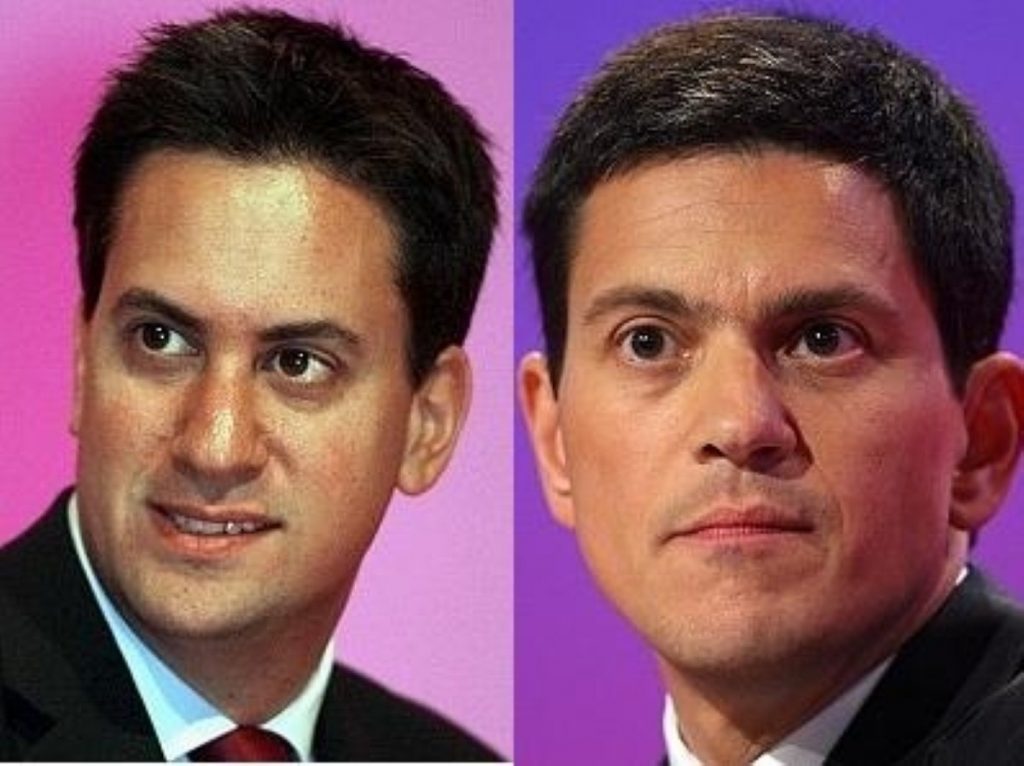Miliband puts his foot down: ‘I won’t swap Ed Balls for my brother’
Ed Miliband killed off speculation about his elder brother taking over as shadow chancellor today, after he said Ed Balls would "absolutely" still be in his job when the country goes to the polls in 2015.
Rumours around a possible return to the front benches for David Miliband have been swirling around Westminster since he made a strong intervention in the benefits debate.
Asked if Balls would still be shadow chancellor going into the election in 2015, Miliband replied: "Absolutely. We will go into the next election as a team.
"There's no vacancy for shadow chancellor."


The comment is quite different from Miliband's previous assertions that he would not guarantee anyone's job while leader of the party.
Talking to the Mirror newspaper last week, he said: "I have the same rule for everybody across the shadow Cabinet. And it's a very principled position, I am going to do nothing that's about measuring the curtains.
"Why would you start naming your Cabinet two-and-a-half years before the election?
"I think Ed Balls is doing a great job but I am not going to get into that."
The commitment to maintaining the Miliband-Balls partnership will disappoint some in the party, who believe the shadow chancellor alienates middle-England voters.
Balls also lost some of his standing in Westminster due to a lacklustre response to the autumn statement late last year.
But he is well respected among many MPs for correctly guessing the UK's return to recession following George Osborne's austerity measures and for being one of the few Labour figures who regularly sparks anger in David Cameron.
Miliband's appearance on the Marr programme this morning saw him face sustained questioning on his party's absence of policies.
Labour has several policy positions on what it would do if it was in government now, but very few when it comes to what it would do if elected in 2015.
"We’ve got more policy than most oppositions have by this stage," Miliband said.
The Labour leader specifically cited the publication of a 'shadow Budget' by Labour in 1992, which led to a successful Saatchi-designed Tory attack on the party's planned "tax bombshell", suggesting the trauma of that experience is still a major part of the party's thinking.









